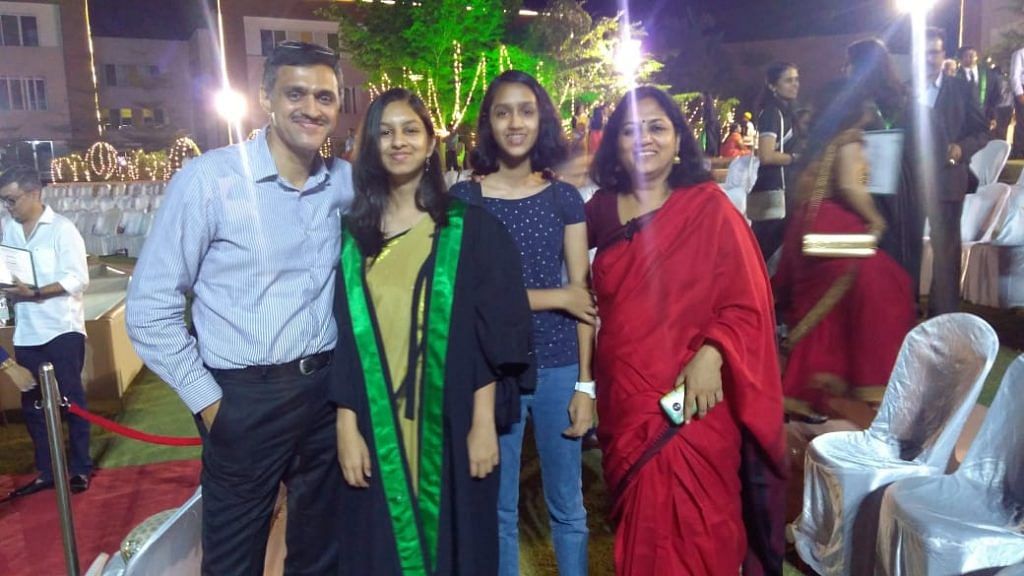New Delhi: Ravi Venkatesham last saw his daughter in December 2019, when she came home for a week-long holiday from her college in London.
Born in California, Megha is an Overseas Citizen of India (OCI), but her family moved to Bengaluru with her in 2002 when she was just a year old.
An OCI card allows its holder a multiple-entry, multipurpose lifelong visa to India. But a week before the nationwide lockdown came into force on 24 March, the Narendra Modi government suspended all international travel as well as the visa-free travel facility granted to OCI cardholders.
“That was extremely shocking as we weren’t given even a few days’ notice to allow us to bring Megha back. India is the only home she has even known,” Venkatesham told ThePrint.
The visas of all OCI cardholders have since continued to remain suspended.
“The order on OCI holders still stands. The return of people to India is based on priority. First, Indian citizens stranded abroad will be brought back and then eventually the service will be extended to OCI holders in the times to come,” a home ministry official told ThePrint.
The official, however, said there is no specific date as to when this will happen.
“The whole reason parents like me decided to get their children OCI cards was because the ownership of that card came with a promise of lifelong access to India, a promise that was supposed to last forever,” Venkatesham said.
“This feels like a betrayal. The government goes out of its way to woo NRIs, but when push came to shove, we are being ignored,” another parent whose child is stuck in London, said on the condition of anonymity.
Also read: In era of social distancing, India’s Ministry of External Affairs must reimagine diplomacy
‘Evacuation, but not for us’
Parents like Venkatesham whose children are stranded in foreign countries, began using the hashtag #GetOurKidsBack, asking for the government to evacuate such OCI cardholders.
#getourkidsback OCI students who have their only home in India need to get a chance SOON to be brought back!!They are feeling abandoned —confused when can they take the home bound flight #@DrSJaishankar @MEAIndia @PMOIndia @SandhuTaranjitS @OIA_MEA https://t.co/woKjUqcd1D
— Pran@li (@Pranli11) May 13, 2020
The government began evacuating Indians stranded in foreign countries on 7 May, as part of its ‘Vande Bharat mission’. The first phase of the mission, which ends on 15 May, is expected to bring back close to 15,000 people from 13 countries.
In the second phase, the number of Indians slated to be brought back is being doubled with 149 flights operating over a span of seven days.
This, however, doesn’t include OCI cardholders, but only Indian citizens — that is, those with an Indian passport.
“Nothing has been said about repatriating OCIs whose primary residence is India. I am an OCI holder. My primary residence for the last nine years has been with my parents in India,” Dhruva Jaishankar, a 19-year-old student at the University of Warwick, said.
“It is worrying that we still have not received any communication from the government to bring us back home,” he added.
According to the Ministry of External Affairs, as many as 1,88,646 Indian nationals abroad have so far registered to come back to the country.
“We are aware that there are certain other categories of people who wish to come back to India. Once we are able to meet the minimum expectations of our own nationals, I think we will be able to examine other requests also, including OCI cardholders,” a government source said.
Sources also said priority as of now is being given to those who have compelling reasons to come back.
‘Counting on relatives and old acquaintances’
Many OCI card-holding students who went to US and UK universities to pursue higher education have had to move in with extended family or acquaintances, in the absence of any means to return home.
Tridib Bhattacharya (18) was in London on 11 March, when the government suspended all OCI privileges starting 13 March. When he saw no chance of him being able to go back home to his family in India, he travelled to the United States to stay with family friends.
“I kept approaching the London High Commission for help, but to no avail. Finally, I decided to come here (the US) since there is some sense of familiarity and comfort with family friends,” he added.
Tridib said he continues to feel “abandoned by India”.
“The worst part is that there is no end goal in sight. There is only uncertainty looming over when we would get to be with our families next,” he said.
Back home in Bengaluru, his mother Bishnupriya Bhattacharya said she has been constantly anxious ever since Tridib’s visa facilities were cancelled.
“We are beginning to tell ourselves that there is a possibility we might not get to see Tridib at all this year. It’s a horrifying prospect,” she said.
Also read: The fall of NRI: How Covid-19 has altered the image of Punjab’s darling community
With inputs from Ananya Bhardwaj and Nayanima Basu.
